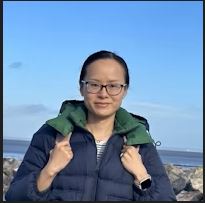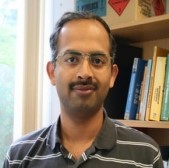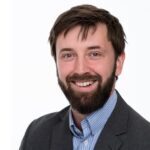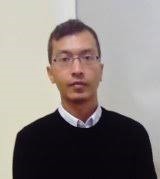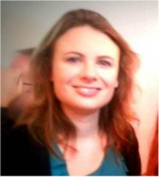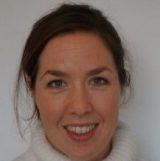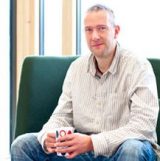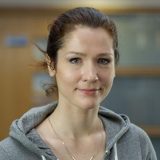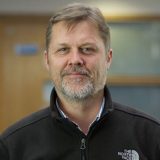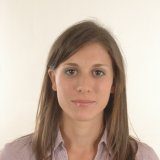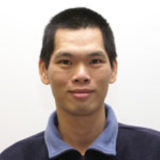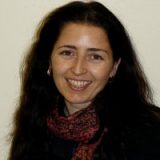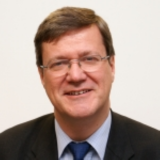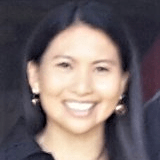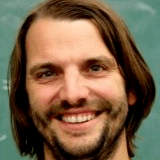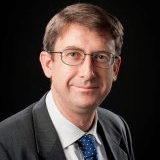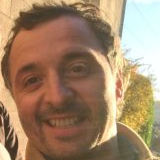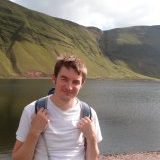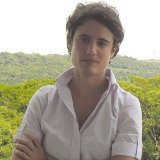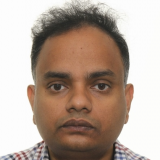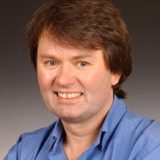Lu’s research focuses on simulating and assessing extreme hydrometeorological events like floods and heat waves, particularly in relation to climate change. Lu employs satellite remote sensing, environmental modelling, and machine learning to analyse urban and watershed contexts.
Prakash Kripakaran
Prakash is academic lead for the civil and structures research group at Exeter. His research interests are broadly in the design and management of civil infrastructures, such as bridges. He has significant experience in: the experimental and numerical modelling of flow and scour (erosion) around hydraulic structures such as bridge piers; the use of applied computing techniques including Building Information Modelling (BIM) for construction automation and design; the development of finite element modelling-based and data-driven strategies for interpreting measurements from bridge structural health monitoring; and the application of optimization methods for structural design problems (e.g. design of trusses and moment-resisting steel frames).
Peter Melville-Shreeve
Dr Peter Melville-Shreeve has worked in consultancy, startups and academic roles over the last decade. He works closely with the Chartered Institution of Water and Environmental Management’s (CIWEM’s) policy team to support sustainable water management systems and chair’s CIWEM’s Water Reuse Task & Finishing Group. Much of Peter’s early research focusses on rainwater management systems and the need for dual purpose designs – which can mitigate droughts and floods. His thesis highlighted the opportunities for Internet of Things technologies to be harnessed to reduce water demand AND manage stormwater flood risk. He consequently founded and exited a technology business which developed analytics and control systems to enable such technologies to be implemented at a range of scales.
Shams Rahman
I am a hydrologist interested in groundwater dynamics, surface water-groundwater interactions, and the influence of groundwater dynamics on land surface and lower atmospheric processes.
Gemma coxon
I am a Lecturer in Hydrology within the Hydrology Group in the School of Geographical Sciences. My research focusses on understanding and predicting hydro-climatic extremes (floods and droughts) in changing environments. My expertise centres on building, applying and evaluating hydrological models for the improved simulation of water systems from local to continental scales across large samples of catchments.
Nina Wedell
Nina is an evolutionary biologist with research interests focused on the evolutionary ecology of sex. She has worked extensively on various aspects of sexual selection and sexual conflict, in particular on the role of selfish genetic elements in reproductive biology.
Gabriel Yvon-Durocher
Gabriel researches the effects of environmental change on the structure and functioning of ecosystems (which comprise groups of species, their interactions with one another and with the physical and chemical environment in which they exist). His work spans multiple levels of biological organisation, from sub-cellular biochemistry to the dynamics of ecosystems, and searches for similarities across aquatic and terrestrial systems. The ultimate goal of his work is to develop a predictive ‘tool box’ to forecast how ecosystems will change in a world increasingly dominated by humans and the oceans.
Michiel vos
Michiel combines approaches from microbiology, evolutionary ecology and population genomics to study bacterial evolution, focusing on horizontal gene transfer, sociomicrobiology and pathogens in the environment. Key projects include exploring the ecological drivers of antimicrobial resistance and virulence in aquatic bacteria.
Rod Wilson
Rod is a comparative physiologist. He aims to provide a more holistic understanding of homeostasis in aquatic animals, both fish and invertebrates, freshwater and marine. This includes studies of how anthropogenic and natural environmental changes impact upon physiology and behaviour in the wild, and how to use physiology to help improve the sustainability of aquaculture (including animal growth efficiency and health, pathogen/parasite resistance, and farm effluent output). He also studies the reverse process: how physiological processes in aquatic animals can influence the regional and global environment in freshwater and the oceans.
Charles tyler
Charles is a reproductive physiologist and environmental biologist. His research interests include mechanisms of endocrine disrupting chemicals and nanoparticle ecotoxicology and assessing population level effects of contaminants in wildlife (primarily fish).
Kelly thornber
Kelly’s research focuses on the global threat of antimicrobial resistance and developing more sustainable aquaculture practices, both in the UK and globally.
Jamie stevens
Jamie is an evolutionary biologist with interests in molecular ecology, population genetics and evolution. Two key strands are fish population genetics, and parasite systematics and evolution. He focuses on questions in the field of population/conservation genetics, with particular emphasis on applying knowledge of population genetic process to the management and conservation of Atlantic salmon and trout, and a variety of marine organisms, including sea fans and lobster, with the aim of understanding gene flow and connectivity in relation to the design and designation of marine protected areas.
Eduarda santos
Eduarda is an environmental biologist investigating reproductive development and function and the susceptibility of these processes to disruption by environmental stressors. Her research focuses on fish and has ranged from investigating the endocrine control of reproduction to addressing the population level effects of chemical exposure for wild fish, using systems biology strategies.
Aimee Murray
Aimee’s research area is antimicrobial resistance in the environment, particularly due to anthropogenic impacts in wastewater and receiving environments. This includes evolution and ecology of antimicrobial resistance, direct selection at low concentrations and co-selection by other antimicrobials and non-antimicrobial compounds, environmental risk assessment, and developing and validating the novel ‘SELECT’ method for rapid determination of selective concentrations of antibiotics and environmental surveillance of antimicrobial resistance. She has a long-standing collaboration with AstraZeneca and engaging with industry and policy makers.
ilya maclean
Ilya is an applied ecologist interested in climate-vegetation interactions at the scales relevant to management and decision-making. He has expertise in microclimatology, remote-sensing and fine-scale hydrological modelling.
chris lowe
Chris is an aquatic Microbial Ecologist (mainly marine). He looks particularly at algal bloom impacts on shellfisheries (e.g. mussel farms) and reservoirs. He is an expert in Cyanobacteria, working with Canadian partners. His focus is on ecological implications rather than applied science. He has close ties with Plymouth Marine Laboratories, where single cell culture takes place and linked to genomics.
anne leonard
Anne’s research focuses on marine systems and epidemiology. She studies catchment-level processes contributing to the transmission of antibiotic resistant bacteria in coastal bathing waters, with a view to identifying mitigation strategies to reduce the spread of antibiotic resistant bacteria in the environment. She is particularly interested in recreational waters, transmission in coastal bathing waters and microbial genes associated with land uses and re-use of water and crop irrigation.
will gaze
Will research is in antimicrobial resistance in farmed and natural environments, including major elements of environmental sampling and wide-ranging analytical methodologies. This includes AMR evolution in the environment, using in situ and in vivo experiments, landscape scale dissemination of AMR and human exposure and transmission studies. Projects are divided into three main themes: ecology, evolution and public health perspectives. These map onto those identified in successive WHO, EU and UK AMR action plans facilitating interdisciplinary research approaches and joined up thinking.
Andrew Hogg
Andrew’s research interests are in mathematically modelling environmental phenomena such as avalanches of rocks and snow, volcanic ash clouds, landslides, debris and mud flows. Modelling these flows requires the development of physically-relevant mathematical models and the computation of their solutions using analytical and numerical techniques. Much of Andrew’s research is interdisciplinary, collaborating with colleagues from Bristol and beyond.
Valentina Noacco
Valentina’s research interests include the development of tools and workflows to transfer sensitivity analysis methods and knowledge to industrial practitioners. This knowledge transfer aims at improving the consideration of uncertainty in mathematical models used in industry. Her current project aims to transfer methods, tools and expertise on sensitivity analysis to the (re)insurance sector in order to facilitate more informed decisions about the risks being underwritten.
Guangtao Fu
Guangtao’s research is focused on developing and applying new computer models, data analytics and artificial intelligence tools to tackle urban water challenges in water supply resilience, network leakage, flood risk, urban stormwater and wastewater management.
Raziyeh Farmani
Raziyeh specialises in urban water systems modelling, water resources management and asset management and has expertise in multi-objective optimisation of water networks. Her research interests covers evolutionary optimisation, artificial intelligence and data mining.
Ian Vaughan
Ian’s research areas include community ecology; long term ecological changes in British river systems; data analysis and modelling; multiple stressors; land use, climate, hydromorphology and river organisms and trophic interactions.
Katerina Kaouri
Katerina’s research covers deterministic and stochastic modelling; fluid mechanics; mathematical biology; asymptotic methods; aquifer and water resource management modelling
Slobodan Djordjevic
Slobodan researches the development and application of advanced methodologies and software tools for water management. These include: drainage and floods simulation, impacts of flooding, effects on human health and impacts on road transportation, resilience to diverse extreme weather events in the context of climate change, tidal energy extraction, water quality modelling, river and coastal engineering, water-food-energy nexus, cascading effects between water, waste, energy, transportation and other infrastructure systems, nature-based solutions, and drought risk management.
Albert Chen
Albert’s research focuses on water and human environment systems. Particular focus is on: hydraulic modelling, urban drainage, flood forecasting, innovation technology applications, water-food-energy-ecosystems nexus, climate change impact on critical infrastructure, prediction of water-borne disease, hazard impact and cascading effects assessment, and mitigation and resilience strategies.
Michaela Bray
Michaela specialises in numerical weather modelling; real-time flood forecasting (raingauge network analysis, real-time updating) as well as remote sensing and Geographic Information System; climate change hydroinformatic technologies.
DAVID BUTLER
David’s research area is urban water management, including sustainable and resilient water systems, integration and control and water-energy-carbon interactions.
Pablo Ouro Barba
Pablo’s main area of expertise relates to the computational modelling in offshore renewable energy (tidal stream turbines and wind turbine farms); turbulence in environmental flows and hydraulics; or multi-phase flows: Eulerian-Eulerian (free-surface) and Eulerian-Lagrangian (sediments). He also works on the development of river turbine arrays for developing countries.
Owen Jones
Owen’s research areas include stochastic modelling and simulation; hillslope surface runoff; quantifying the impacts of climate change; sustainable water usage and operational modelling.
Ross Brown
Ross’ research focuses on refining environmental risk assessment approaches to safeguard aquatic ecosystems from pollution and to facilitate the sustainable development of aquaculture.
Shunqi Pan
Shunqi’s research covers the physical and numerical modelling of coastal and estuarine processes; prediction of large-scale extreme waves and surge; climate change impacts to the marine environment; coastal defences and flooding and marine renewable energy.
Yacine Rezgui
Yacine specialises in modelling, data analytics, informatics (semantics), knowledge management; catchment and urban water management; resilience of the built environment to natural disasters; smart cities.
Zhihua Xie
Zhihua’s research covers computational fluid dynamics, turbulence modelling, interfacial and multiphase flows, water wave mechanics, hydrodynamics, hydraulics and marine renewable energy.
Sheila Samsatli
Sheila’s research interests focus on multi-scale mathematical modelling and optimisation, and their application to engineering problems (such as process synthesis and integration, whole systems design and operation, production planning and scheduling, supply/value chains, location, transportation problems etc). She is interested in applying these ideas to water networks and infrastructure, and within the water-energy-food nexus and the marine environment.
Robert Scheichl
Robert’s interests are in the design and analysis of efficient and robust parallel numerical methods for engineering and physical problems with heterogeneous material properties that vary over multiple scales. This is typical in energy and environmental applications, but also in material science and manufacturing. He is particularly interested in multilevel and multiscale methods for partial differential equations with strongly varying and high contrast coefficients, in particular domain decomposition and multigrid methods, preconditioners for systems of PDEs, iterative eigensolvers, and multiscale discretisation techniques with applications in oil reservoir simulation, radioactive waste disposal, numerical weather and climate prediction, novel optical materials or composite materials. More recently his particular focus has been on the interface between computational mathematics and statistics/probability.
Jonathan Dawes
Jonathan’s research focuses on applied dynamical systems, bifurcation theory and dynamics with symmetry, pattern formation, mathematical biology and fluid mechanics.
Liz Holcombe
Liz has a research background in dynamic slope hydrology and stability modelling with a particular focus on urban landslide risk management in the Humid Tropics. Her wider research interests include decision-making in uncertain environments, ‘building back better’ for resilience and sustainability, and community-based approaches.
Benedek Plosz
Benedek’s research interests include assessing the fate of trace organic chemicals in urban water systems (pharma, drug biomarkers), computational fluid dynamics of bioengineered water systems, and biogeochemical used-water resource recovery.
Jeff Neal
Jeff’s research interests include the development of hydraulic models and the assimilation of observations with such models across and range of spatial scales. He also researches support for flood risk management, which includes work on modelling flood hazard in urban areas and methods to increase the computational efficiency of hydraulic models.
Francesca Pianosi
Francesca’s research interests include the application of mathematical modelling to advance the understanding and support the sustainable management of human-environment systems, and in particular water resource systems.
Sangaralingam Ahilan
Sangaralingam’s main interests are in sustainable urban flood risk management and the long-term performance of sustainable drainage systems, using detailed hydrological and hydro-morphodynamic modelling. He is also analysed SME behaviour in flooding aftermath.
Alberto Roldan Martinez
Alberto’s research is based on computer simulation linking materials composition and atomic structure to the reactivity of relevance to chemistry and sustainable industry. He is particularly interested in the recovery and utilisation of chemicals in wastewaters.
Julian Padget
Julian’s research focuses on multiagent systems; agent-based simulation; sensor architectures; IoT; energy and air quality monitoring; distributed ledgers; fusing symbolic and statistical AI; policy modelling; security and privacy.
Ian Bateman
Ian is an environmental economist, interested in ensuring sustainable wellbeing through the integration of natural and social science knowledge within decision making and policy. Particular interests lie in the fields of quantitative analysis, integrated modelling and the valuation of non-market benefits and costs.

